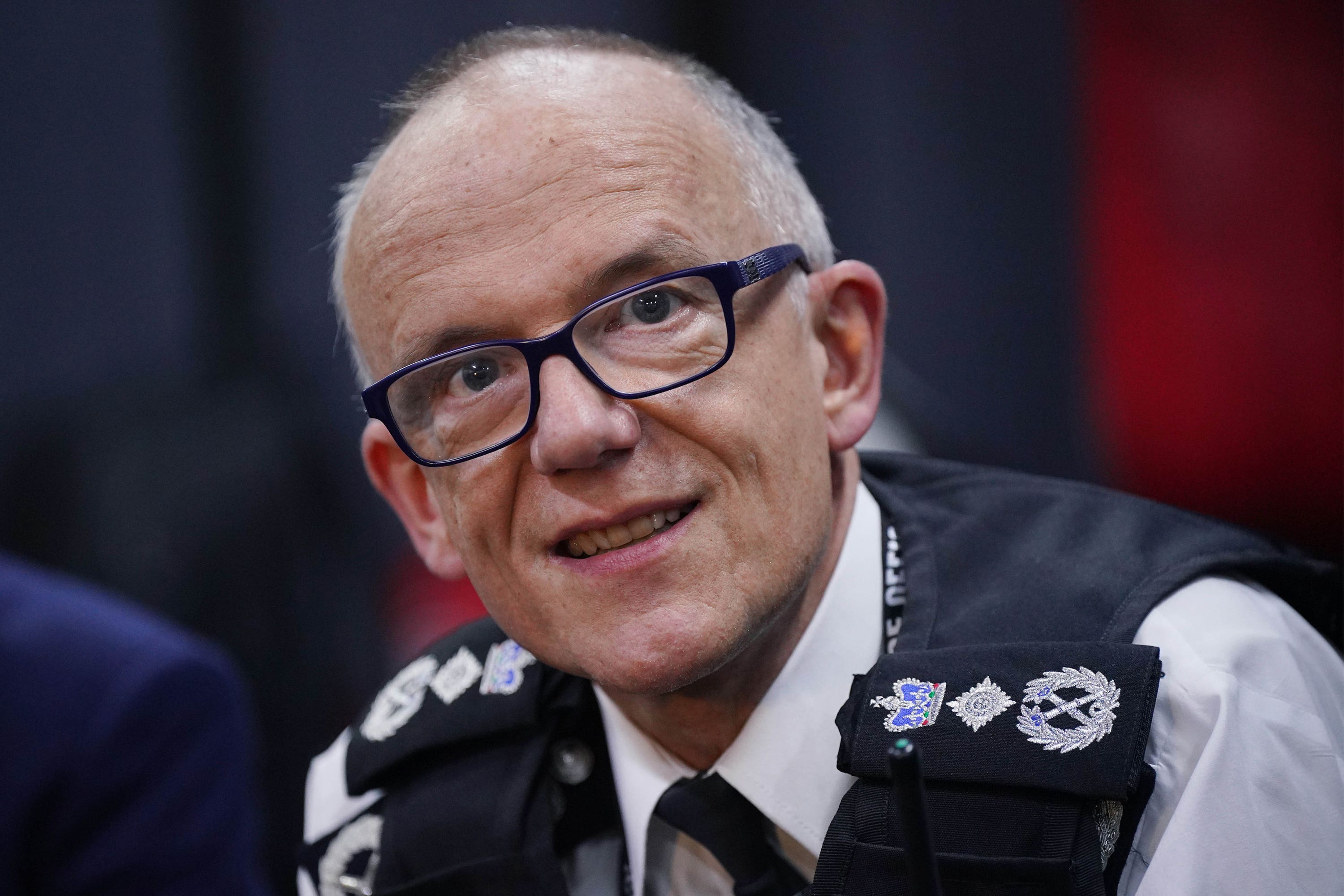Met Police chief promises to ‘root out’ corrupt officers in two-year plan
Sir Mark Rowley published the plan on Friday, which included assurances such as investing in diversity to become an ‘anti-racist’ organisation.

Your support helps us to tell the story
From reproductive rights to climate change to Big Tech, The Independent is on the ground when the story is developing. Whether it's investigating the financials of Elon Musk's pro-Trump PAC or producing our latest documentary, 'The A Word', which shines a light on the American women fighting for reproductive rights, we know how important it is to parse out the facts from the messaging.
At such a critical moment in US history, we need reporters on the ground. Your donation allows us to keep sending journalists to speak to both sides of the story.
The Independent is trusted by Americans across the entire political spectrum. And unlike many other quality news outlets, we choose not to lock Americans out of our reporting and analysis with paywalls. We believe quality journalism should be available to everyone, paid for by those who can afford it.
Your support makes all the difference.The Metropolitan Police Commissioner has promised a thorough review of the force’s culture and professional standards in an effort to “root out” corrupt officers such as David Carrick.
Sir Mark Rowley published his two-year plan to improve standards and rebuild trust in the force on Friday – with assurances such as investing in diversity to become an “anti-racist” organisation.
Sir Mark, who took over from Dame Cressida Dick in September last year, said earlier this month, he had been building a “practical plan for turning things around” after a watchdog found the force’s anti-corruption systems were not fit for purpose.
A damning review of disciplinary procedures also found officers and staff were getting away with misconduct and breaking the law.
Mayor of London Sadiq Khan, said officers were “disgusted” at what had been exposed in the force recently, such as disgraced officer Carrick, who was unmasked as one of the UK’s most prolific sex offenders after pleading guilty to 49 criminal charges, including 24 counts of rape.
The Met’s “turnaround plan” for the next two years shows the force have set out three areas of focus – “more trust, less crime, higher standards”.
In the reform plan, Sir Mark admitted the Met had been “too weak in countering racism, misogyny, homophobia and ableism” – adding: “We have let down those we’re here to protect.”
The Commissioner promised the largest neighbourhood policing presence ever in London, a reduction in the average time taken to reach an outcome for reported breaches of professional standards, and a greater ability to identify corruption in the force.
After the plan was published, Sir Mark said: “This week we have condemned the appalling criminality of David Carrick and shared the missed opportunities over many years to have taken action.
“I know our communities need to see reform in the Met, on issues of standards and culture but also in how we do more to reduce crime.
“The next two years are critical – from adopting new technologies and methods to achieving our goals and investing in our people. Those we serve, as well as our own people, rightly expect the highest standards too.”
Speaking after Sir Mark published the plan, Mr Khan said: “Every officer and member of staff at the Met has a part to play in making policing in London better, in rebuilding public trust, and restoring the confidence of our communities which is so vital to policing by consent.
I know our communities need to see reform in the Met, on issues of standards and culture but also in how we do more to reduce crime
“I have spoken to many police officers who feel just as disgusted and let down as I have by what’s been exposed recently, and who are desperate to play their part in raising standards and ensuring the bond between the police and the communities they serve is restored and strengthened to build a safer London for everyone.
“In the coming weeks, I will be announcing more investment to enhance the work that has already started to rebuild public trust, reduce crime, better support victims and empower the Met further to rid itself of all officers who fall well short of the standards expected by policing and the public.”
An updated version of the turnaround plan is due to be published in April following 12 weeks of engagement with the public.